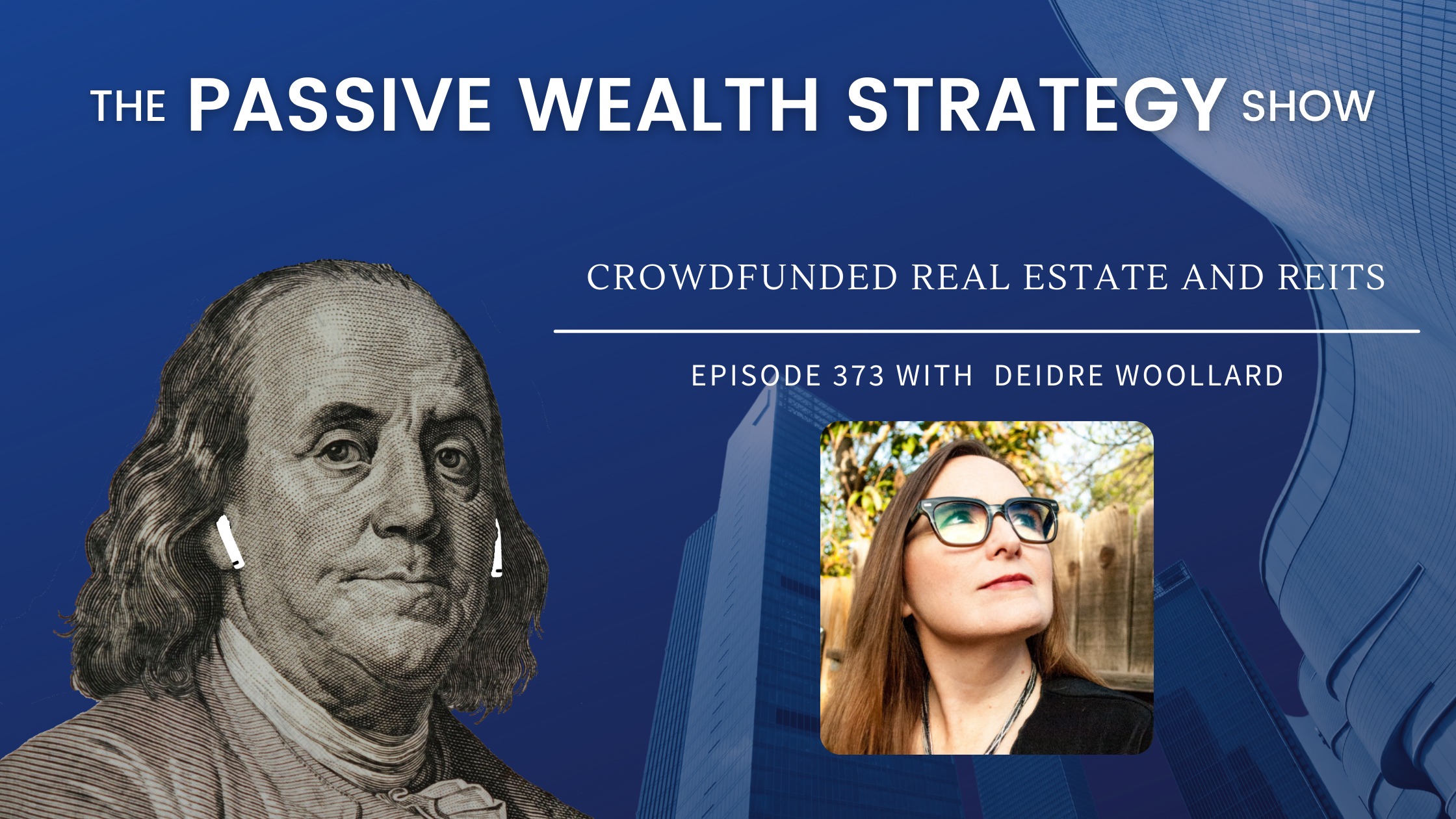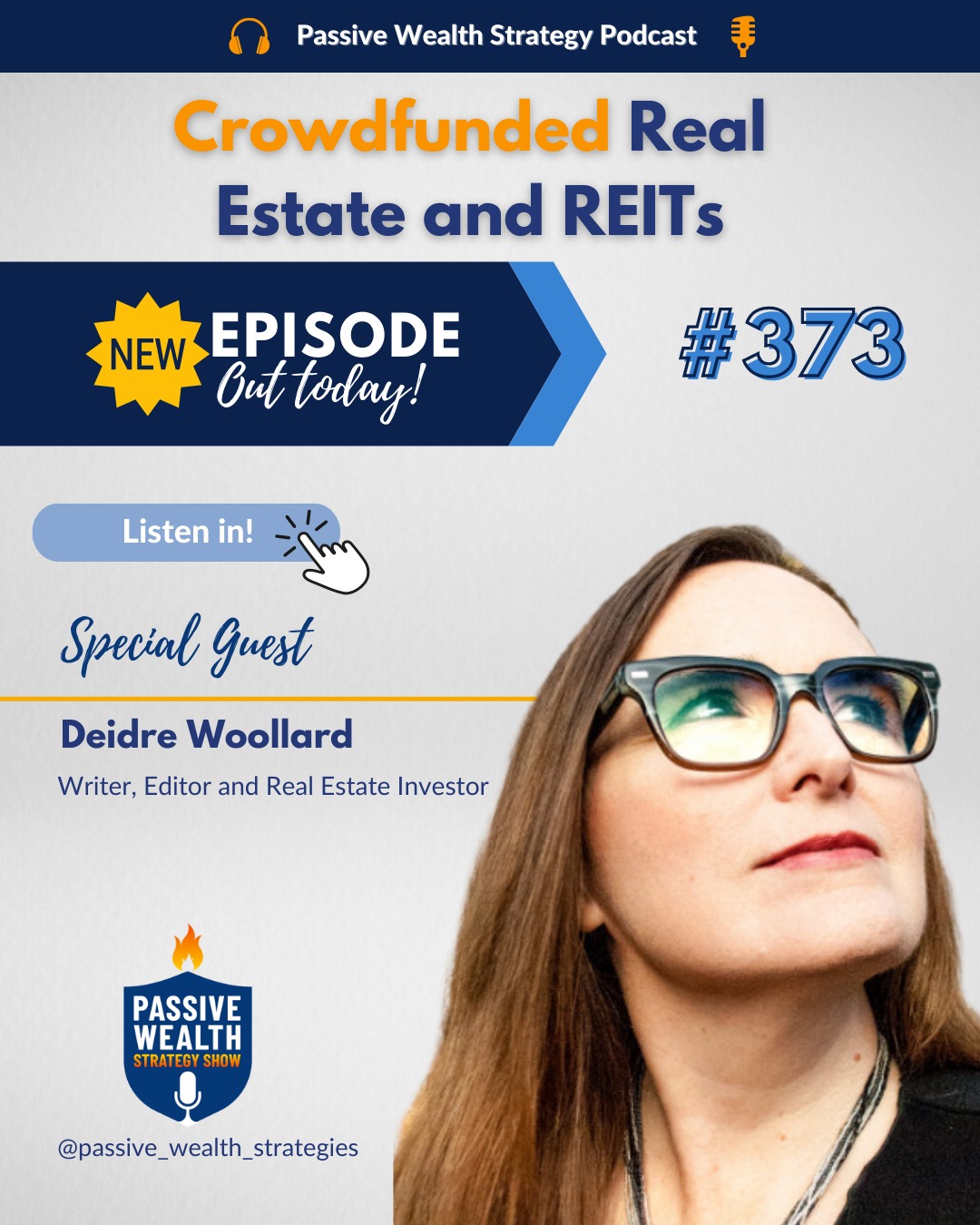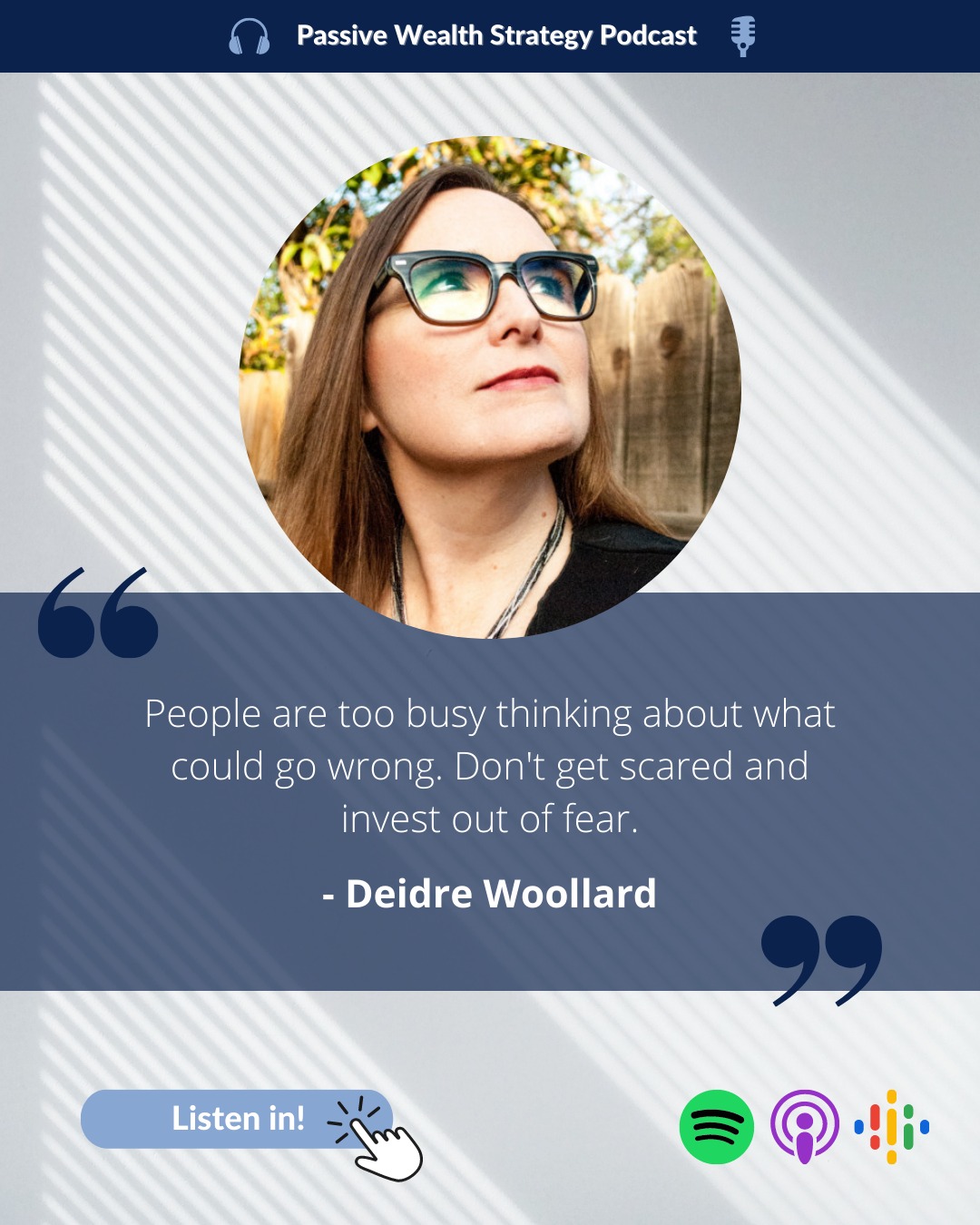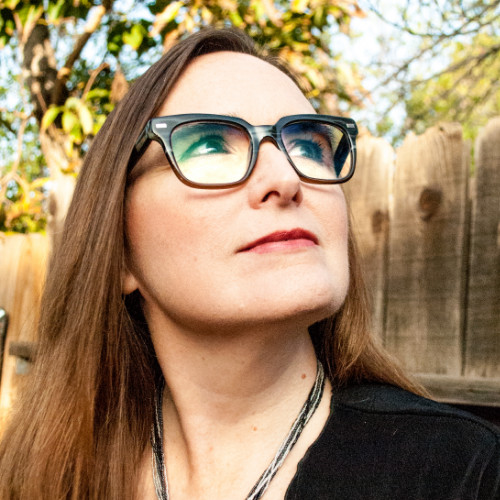
Crowdfunded Real Estate and REITs with Deidre Woollard
Deidre. Thank you for joining us. Thank you to our listeners out there who don’t know about you and your background. Can you tell us about what you do and the business that you’re involved in?
I’m at the Motley fool, I’m a real estate writer and analyst I’ve written about real estate for about 20 years, starting originally with America online way back in the day, writing about celebrity real estate.
Also worked at a couple of brokerages in Los Angeles. Marketing and celebrity real estate PR and all sorts of things like that. I’ve been at the Motley fool for several years when they launched a million acres and mogul the real estate investing service. And so just been continuing to learn about real estate and real estate crowdfunding.
And right now I’m writing a book on real estate crowdfunding.
Awesome. Great. And I want to thank you for joining us here. And also just acknowledge that we were talking about this before we recorded that The Motley Fool played a part or a role in my becoming an investor in general. When I first graduated from college, I had a job.
I finally had two nickels to rub together and I thought, how do I turn this into more? It was a big-time Motley Fool listener, and, things have changed. My strategies evolved since then to suit my current goals. But, I want to make sure to give that shout-out and, express my gratitude for, your company’s role in getting me started.
Yeah, today, we’re going to talk about a few different areas of real estate crowdfunding and reads and things like that. So where do you want to kick it off? And we don’t really talk about reads on this show that much. I think this will probably be the first episode where we discuss REITs in general.
So can you give us an intro to, you know the basic structure of a read and, thoughts on, on, on them?
I think REITs are a great way to dip your toe into real estate. If you’re maybe you haven’t bought a house yet, or you’re not even thinking about that. You don’t have a lot of money.
It’s a good way to start thinking about real estate. So REITs publicly-traded REITs they’re just like sock stocks, except that they have to pay out 90% of their income. So they give out, they had. Issue dividends on a consistent basis. So that’s one of the things to keep in mind with REITs.
And one of the reasons that people like them for retirement is because they’re paying out over time and we told all kinds of real estate, there are industrial REITs, there are office REITs. There’s a hospitality REITs, retail REITs, pretty much anything you can think of. So it’s just, that it’s an interesting sector of the public stock market.
Yeah, may that the 75-75-90 rule for REITs is pretty unique that I think a lot of people might not know about that they have to have, I think 75% of their income generated from real estate or mortgages, 75% of their assets invested in real estate, and 90% of their net income has to be distributed to shareholders and that’s pretty rare for a publicly-traded type of REIT.
And they were really created during the sixties to basically give public investors more access to commercial real estate because for so long commercial real estate was really how the wealthy made money. And, I put together REITs and crowdfunding.
You, you see these two things that really changed, opened up that door because so much of commercial real estate, they always talk about like the country club deals and things like that. But that really was how large investments were done. Decades years.
Yeah. Yeah. And know, you mentioned crowdfunding, which we’re also going to discuss today, but before we move on to that, I wanted to bring it up.
And I don’t know how much this factors into what you generally talk about, but public versus private REITs, public REITs are probably more common. People are aware, but there are private REITs out there, frankly. I’m not that knowledgeable on those in particular. And I’m not that knowledgeable on how they differ from what you might consider crowdfunding.
Do you think we could dip into that a little bit and, the distinction between public and private REITs?
Yeah, it does get a little confusing because some of the crowdfunding platforms actually have REITs within their structure. Like Realty Mogul, and Fundrise, they have REITs within their structure and those are private REITs.
There are also other companies that offer private REITs that sort of function as an investment fund. And they, but the difference between a publicly-traded REIT and a private REIT of course is pricing. So if it’s a publicly-traded REIT. It’s on the stock market, it’s trading the way you would normally expect.
And then for private REITs that you know, that, that isn’t a factor. It’s not being determined by what the market is doing that day.
So liquidity, in general, is a detailed topic that requires a lot of discussions, but in a private REIT, I invest in syndications, which are illiquid and, restricted securities and all of that, but in a private REIT in particular, I don’t know. Like what the potential exit options might be. Who do you sell it to when you want to sell, how does it exit, and how does it payout at the end? I don’t know.
It depends on the REITs and the platform. Some of them, you have to hold for a certain amount of time, and then you can exit some of them have a secondary market built-in. It depends. And that’s one of the things to keep in mind. When you’re getting into anything look into that because if you’ve got public REITs yeah, you can buy and sell on the same day. Wouldn’t recommend it, but you can do it, if you’re dealing with private things then the rules are generally different and set by that individual.
Okay. And that pricing, I think is I’ll be, Frank, about my concerns about publicly-traded REITs, is that the liquidity also can lead to volatility because people are more able to do the panic, sell, hit the button. And if you look at, if you look back at what happened right at the beginning of the coronavirus pandemic, there was a lot of that panic selling, which to me is a disadvantage of the more liquid securities.
Sure, absolutely. Yeah. During the. At the beginning of the pandemic. Yeah. That, that times for REITs last year, right? Your REITs, they were up over 40%. Publicly-traded REITs varied by sector. But very strong year, partly because they were bouncing back. And, as we’re taping this right now, the stock market is not having a great January.
It has been rough and. Yeah, REITs, aren’t getting hammered the way tech stocks are, but they’re being dragged down and, unfairly. Cause they’re great companies. There’s not something that’s happening internally within the companies. It’s, that they’re just being victims of that market volatility that we’re seeing all everywhere.

Crowdfunded Real Estate and REITs with Deidre Woollard
Absolutely. The REITs changing and the federal reserve making a different announcement every day. Yeah. Yeah, absolutely. Now. Reading into it or reading into, the Motley Fool’s decision to start a million acres from getting it right. And then start talking more about real estate. I would presume it came out of more interest from investors.
They want to hear more about real estate investing, especially when it comes to more passive options like Rita and crowdfunding. And that’s where they get started. Is that true? Is that why they started it, brought you on board, and got this all going? Let’s talk about that.
Yeah, absolutely. There were a couple of very smart fools inside the organization. I know we all call each other fools it’s out. It sounds so weird, but Matt Argersinger and Austin Smith who were both real estate investors on their own and longtime Motley Fool employees got together and we’re telling the rest of the team like, Hey, real estate is, is a really interesting thing that we need to be able to offer our members.
And really it was part of that idea of being able to offer people something a little bit outside the stock market by talking more about real estate crowdfunding and the service mogul specifically recommends things that are on crowdfunding platforms and also does some direct responses.
Right.
Okay. Okay. So those crowdfunding platforms that we have a few of them as, affiliate partners here on this show, and, their names are not being mentioned by me right now. That’s, I’m not going to put a plugin, but, can you tell us about your experience there and looking into them and what the Motley Fool, can provide as far as, Hey, thought leadership goes about crowdfunding platforms or opportunities.
Yeah. So we published reviews on most of the major platforms looking at things like communication how easily you can get in and out what the leadership is like where the fees come from, and things like that. So all of that is really important. With crowdfunding, the deal is to know what you’re getting into ahead of time.
And I think that’s one of the things that makes it a little bit trickier because the rules really are different from platform to platform. The fees are different from platform to platform. So they’re not all equal. I think the other thing is how picky they are too. I think you want a platform where they’re not throwing tons of deals at you. There’s some selection that happens on the backend.
Okay. I’m curious about this whether you get any blowback from the platforms, if you give a particularly negative review, I have a this is not exactly related, but I have a self-directed IRA and I participate on bigger pockets.
And at one point I said, I have my self-directed IRA with this trust company. And I don’t like the service that I’m receiving and wouldn’t, they reached out to me with complaints about my, a negative review posted publicly. And you have a much bigger platform than the, my piddly little post on a bigger pockets forum thread.
Do you ever get that blowback or, do they, want constructive feedback what’s been your experience?
Yeah, absolutely. When we publish those reviews there was definitely some feedback about it. Whether why we rated three things certain ways. And of course, it was all, it’s all transparent.
It’s all on the page. So there wasn’t. We’re not going to change something just because somebody doesn’t like it if we can show that we, that we have a reason for rating it that way. But yeah. And the same thing is true on Mogul because we score individual crowdfunding deals that, are recommended and those all have scored too.
So there is, there’s been some, there’ve been some concerns about why is this one rated and that one isn’t rated, but it’s really up to the discretion of the people that are. Doing that rating and our end are trained in that.
Okay. You’ve mentioned a few things like communication is important.
Of course, that makes a lot of sense. And I suppose, newer investors to the space might just expect that, oh they’re on this platform. They should be, pretty well vetted. And I shouldn’t have much to worry about, from what you’re saying, that sounds like it’s not always the case.
I think individual deals on crowdfunding platforms all have individual sponsors. So of course, so much of your experience through the deal. Isn’t going to be with the platform itself, as much as it’s going to be with that sponsor. And so you need that track record. You need that.
You need to know that they’ve had experience, not just with realized deals, but with realized deals in a particular sector in a particular location, that sort of thing. So there’s a lot to look at, I think, in the beginning aspect of things. Okay.
Okay. And we were talking about this before we recorded it as well.
We do syndications and in my business, I invest in syndications, and one of the. If you will, the downside of a syndication investment is typically it’s got a fairly high minimum of 50 or a hundred thousand dollars, depending on the deal and all of that, whereas REITs are publicly traded, you buy one share, it’d be pretty cheap or, crowdfunding.
What do you see there as far as, minimum investments go I’d imagine it’s a pretty wide range,
very wide range. All the way down to $10. With, you can get into either Fundrise or ground floor, I believe with starting with $10, I $10. Isn’t gonna, it’s not going to do much for your overall returns but you can get started pretty low.
Some of the others have. Three, four, or $5,000 minimums. So you can get in at a pretty low rate, and then you can go forward from there. These are all things that are open to non-accredited investors at that lower level. So you’re not seeing massive returns, but, and you’re most likely investing in a fund unless you’re doing the ground floor, which is individual loans.
So you mentioned a couple of platforms there and we’re working on getting somebody from the ground floor on the show here quite soon. Are there what are some other platforms that, you’ve looked into that, don’t know, maybe you have a positive opinion or you have content out there that folks can look up and read more about.
I would say Fundrise is probably the most popular one. They do a lot of advertising and it’s the one people I think have heard of the most because they have these sort of easy reads and they’re they’ve got these different funds that you invest in and they’re following a lot of the trends that we’re seeing in investing right now.
Like multifamily. So single-family build to rent, things like that. So they’re invested, in the Sunbelt and things like that. And so you’re part of a fund, which invests in a lot of different projects. Realty Mogul is another one they’ve got they have things for accredited investors, but also they had several funds that they invest in a variety of different projects all across the country. Lot, a lot of interest in multifamily.
Okay. Okay. So D does it look like the, in general, the deal type deal, asset class availability kind of trends with the general market interest in and what people are interested in, I guess.
Yeah. I think so much is going toward multi-family right now and single-family rentals, just because there’s such a housing crunch all over the country and especially in the Sunbelt.
We were watching that kind of before, before the pandemic, and then after the. My goodness, like all of the numbers from your hall does their annual survey and you just see, you could almost visualize the moving trucks, just leaving California and heading to Texas and Florida.
As long as they’re not coming to Virginia, we were we’re full. We’re good. We don’t need more. So that actually gets into, a good point that I wanted to bring up is, you’ve been writing about real estate for a while now. And you’ve seen changes in the market. We’re seeing interest rates going up, potentially we’ll see how long that lasts.
I’m a little skeptical that’s going to happen, but nonetheless, we do have a housing shortage and all of that. What are your thoughts about the future of the real estate market generally?
I really cannot figure it out. We’ve got less than a million homes for sale existing homes for sale.
According to NAR prices have gone up for 118 months in a row. So with a median price, like a 358,000 they’re, they keep saying. We’re going to see some price. We’re not going to see prices go down this year. I think Lawrence Yon at the NAR is predicting around a 5% increase, which is low compared to, compared to recent years.
So maybe a little price deflation, but we’ve still got this massive inventory shortage and it just hasn’t changed for real, I think about a decade that I’ve been following inventory being below the 600. Average, that’s supposed to be there. We haven’t hit that average, since the great financial crisis.
And I don’t know, Zillow came out, I think it was last year with an article about the silver tsunami and everybody was going to hit, the boomers are going to get old and they’re going to sell their houses. It’s not happening yet. People are aging in place so far. Is that going to change?
It seems like it has to at some point, but so far nothing is making an inventory shift.
It’s very interesting. We are, we do our real estate investments, of course, my fiance and I are at the moment, making offers on houses for ourselves, and we’re going to sell the place we currently live in and it’s brutal.
There’s nothing coming on. And all of the other offers, we make strong offers, but we’re getting just stomped by people, going crazy. It’s. Almost hard to believe that this rate of growth is sustainable. People don’t seem to understand the number of repairs the property is going to need.
They’re just trying to buy something.
Buying sight, unseen contingencies waived, no home inspection, just oh, and, but it’s not a bubble. That’s the thing that’s so different from following the great financial crisis this doesn’t feel like that. Of course, the loan climate is different now too, but it doesn’t, it also doesn’t feel like we’re going to have a big meltdown as we had previously.
I’m sure. Hope not. Really, you mentioned that the loan market is different and it is, we have more strict underwriting standards now, which is good. And that gets to. Really in my mind, the main cause of the depth and the length of the great recession was it’s really the financial markets.
It’s not because anything has changed about the fundamentals of real estate. It’s that money disappeared. People couldn’t finance the deals. That’s really what happened.

People are too busy thinking about what could go wrong. Don't get scared and don't invest out of fear.
Deidre Wollard Tweet
Yeah, absolutely.
So I guess the big question is with interest rates going up that impacts affordability, and what people can pay.
I would see that as probably the biggest headwind but I’m not really sure.
I think the Fed is going to be there. Get they’re going to be tiptoeing into this. There are the interest rates that aren’t going to pop. The Freddie Mac number came out today. I think it was like 3.5, 5% was pretty much flat from the previous week.
I think we’re not going to see a dramatic uptick, but I think it will be a shock for a lot of people because it’s been so low for so long. The first time I bought something, it was in, I think it was in the sixes or sevens, but I know people who bought in the like eighties and, the interest rate was like 13% or something like that.
And that was just, that was what you paid. So I think it’s going to be a shock for a lot of people when it starts being over five percent.
Yeah, absolutely. It’s hard to even imagine that right now with rates being in the high threes on a 30 year, I just five going up to six or seven. That, that is going to change the market, I think pretty heavily.
Yeah, absolutely. But it’s not coming anytime soon.
I sure hope not. I gotta get this new place under contract first. Awesome. Appreciate all the commentary so far right now. We’re going to take a quick break for our sponsor. All right, DJ Deidre. I’ve got three questions. I ask every guest on the show.
Are you ready?
I am not ready at all, but I’ll try.
I’m sure you are. I’m sure you are. The first one, what is the best investment you’ve ever made other than in your education?
Buying a condo when I was in my twenties in a little suburb outside of Boston, was a good move. I didn’t understand a thing about real estate and didn’t really know what I was doing, but I got a great place and I loved that.
Nice. That one gets you started too. Once you buy that first one, whether it’s personal property, personal residence or an investment property that kind of gets your toe in the water, gets you familiar with the process. And I think at the end of the day, really is going to help get people started in real estate is just to make that first purchase.
Yeah, absolutely!
Nice. We had the best investment. Now we go to the other side of that coin, the worst investment. What is the worst investment you ever made?
Oh, I really can’t. I really am not sure. I know it was a stock. I know it was probably something that I thought was really brilliant at the time and ended up not being so brilliant.
I think that’s one of the things about the stock market is one of the things we teach at the Motley Fool is you you have to have, you have to be invested in enough stocks that when something that you think is a really great idea, doesn’t pan out and. That’s okay. One that I invested in last year it’s a farm that is basically avocados and it’s not doing that well, I think it’ll get better, but right now it’s not my favorite.
Interesting. And that was publicly traded?
Publicly traded.
Interesting. Okay. I would expect that to do well, that’s the temperamental nature of stocks. You never really know.
Exactly.
My favorite question here at the end of the show is what is the most important lesson you’ve learned in business and investing?
Don’t get scared. I think it is so easy to get scared. I think right now in the stock market, people are getting scared. I think when you people don’t buy a house, cause they’re scared they want to invest in real estate. Cause they’re scared. They’re too busy thinking about what could go wrong.
I think that you can build in the worst-case scenario, but you can’t live by it. So you build in the worst-case scenario, you have your plan B, but you don’t get caught up in that because if you’re just if you’re scared if you don’t ever make them. You’re never going to know what’s happened that happened.
You talked about it at the start. If you hadn’t started thinking well, okay, what else could I do? You might still be at a job you hated.
That’s very true. That’s very true. I was miserable in that job. And if you’re afraid of the sky falling, heck you might end up sitting on cash and gold and I’m sorry to all the gold bugs out there.
Gold just does not perform very well in any market. So hate to break it to you. It’s not probably.
No, no, not even that great. A hedge against inflation. It turns out.
Unfortunately, not on for him, it is what it is. Deidra, thank you for joining us today! If folks want to reach out, if they want to learn more about what you’re up to, read any of your writing, or anything like that, where can they track you down?
Fool.com is a great place to startup. I’m also on Twitter. First name, @Deidre.
You got, you were, must’ve been right on it to get that handoff.
It was a long time ago.
Nice. Good for you. Thank you once again for joining us today to everybody out there. Thank you for tuning in. If you’re enjoying the show, please leave us a rating and review on the apple podcast.
Five stars. If you don’t mind, guys, I appreciate it so much that helps other people learn about the show, because that helps us rank higher in the apple podcast ecosystem. And I’m always honest with you guys. I say this every time and I mean it, every time that gives me a nice little warm and fuzzy feeling because I get to see that you’re engaging with the content and you’re escaping the wall street casino along with us.
If you know anyone who could use a little bit more passive wealth in their lives. Please, share the show with them and bring them into the tribe. Thank you for tuning in once again. I hope you have a great rest of your day and we’ll talk to you on the next one. Bye-bye.

Crowdfunded Real Estate and REITs
About our Guest

Deidre Woollard
Episode Show Notes
Deidre is the co-founder of Lion & Orb, a real estate public relations company. Previously she was part of the marketing team at realtor.com, a publicist at Rodeo Realty, and head of communications for Partners Trust in Los Angeles.
Deidre Woollard is the editor of Millionacres, a Motley Fool company dedicated to helping people become smarter, happier, and richer through real estate investing. Her background in real estate began as part of the blogging team for AOL. She later worked at Move Inc. within Realtor.com’s communications team and handled marketing and communications at top residential real estate brokerages. Real estate investing is a family tradition and she comes from a long line of landlords, renovators, and contractors currently invested from Massachusetts to California. She has an MFA in Writing from Spalding University.
[00:01 – 06:25] Opening Segment
- Get to know Deidre Woollard
- 20 years of real estate writing and analysis
- Deidre gives Real Estate Investment Trust (REITs) crash course
[06:30 – 12:26] Real Estate Investment Trusts
- The Difference between Public and Private REITs
- Why the Exit Options in REITS are Diverse
- Real Estate and Passive Investing Opportunities
[12:27 – ] Crowdfunded Real Estate
- Thought Leadership about Crowdfunding Platforms and Opportunities
- Crowdfunding Minimum Investments
- A Little Price Deflation? The Future of the Real Estate Market
[21:58 – 28:22] Closing Segment
- Quick break for our sponsors
- The first step to growing your wealth is tracking your wealth, income spending and everything else about your finances, you can start tracking your wealth for free and get six free months of wealth advisor. Learn more about Personal Capital at www.escapingwallstreet.com
- What is the best investment you’ve ever made other than your education?
- Buying a condo in her 20s
- Deidre’s worst investment
- Stocks
- What is the most important lesson that you’ve learned in business and investing?
- “Don’t get scared”
Connect with Deidre Woollard through Twitter and LinkedIn. Visit their website The Motley Fool and get expert investment guidance.
Invest passively in multiple commercial real estate assets such as apartments, self storage, medical facilities, hotels and more through https://www.passivewealthstrategy.com/crowdstreet/
Participate directly in real estate investment loans on a fractional basis. Go to www.passivewealthstrategy.com/groundfloor/ and get ready to invest on your own terms.
Join our Passive Investor Club for access to passive commercial real estate investment opportunities.
LEAVE A REVIEW + help someone who wants to explode their business growth by sharing this episode or click here to listen to our previous episodes
Resources Mentioned:
Tweetable Quotes:
“REITs are a great way to kind of dip your toe into real estate, maybe you haven’t bought a house yet, or you’re not even thinking that you don’t have a lot of money. It’s a good way to start thinking about real estate.” – Deidre Woollard
“It is really important with crowdfunding deals to kind of know what you’re getting into ahead of time.” – Deidre Woollard







